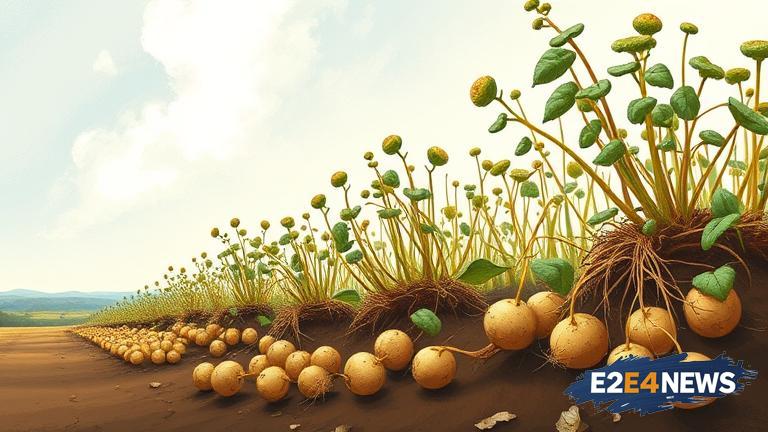Uruguay has made significant strides in potato seed innovation, with researchers and farmers joining forces to develop new, high-yielding varieties. This collaborative effort aims to boost national potato production and increase the country’s competitiveness in the global market. The research focuses on improving seed quality, disease resistance, and climate resilience, ensuring that Uruguayan potatoes can thrive in diverse environments. By working together, scientists and farmers can identify key challenges and develop targeted solutions, ultimately benefiting the entire potato value chain. The initiative has already shown promising results, with new seed varieties demonstrating improved yields and better adaptability to local conditions. This breakthrough has the potential to increase farmer incomes, enhance food security, and contribute to the country’s economic growth. Uruguay’s potato sector is poised for significant expansion, driven by the adoption of innovative technologies and practices. The country’s favorable climate and soil conditions make it an ideal location for potato cultivation, and the new seed varieties are expected to further capitalize on these advantages. As the demand for high-quality potatoes continues to rise, Uruguay is well-positioned to become a major player in the global market. The collaborative research approach has also facilitated knowledge sharing and capacity building among farmers, enabling them to make informed decisions and optimize their production practices. Furthermore, the initiative has highlighted the importance of public-private partnerships in driving agricultural innovation and development. By leveraging the strengths of both research institutions and farming communities, Uruguay can accelerate progress towards a more sustainable and productive potato sector. The long-term benefits of this collaboration are expected to extend beyond the potato industry, contributing to the country’s overall agricultural development and food security. As the project continues to evolve, it is likely to serve as a model for other countries seeking to enhance their agricultural sectors through innovative research and collaboration. The Uruguayan government has expressed its commitment to supporting the potato sector, recognizing the significant potential for growth and development. With the right policies and investments in place, the country can unlock the full potential of its potato industry, creating new opportunities for farmers, processors, and exporters. In addition to the economic benefits, the initiative is also expected to have a positive impact on the environment, as more resilient and disease-resistant seed varieties can reduce the need for chemical inputs and promote more sustainable farming practices. The research has also explored the potential for potato cultivation to contribute to soil conservation and biodiversity, highlighting the crop’s role in maintaining ecosystem health. As the global demand for sustainable and climate-resilient food systems continues to grow, Uruguay’s innovative approach to potato seed development is well-timed and forward-thinking. By prioritizing collaboration, innovation, and sustainability, the country can establish itself as a leader in the potato industry, while also contributing to the broader goals of food security, environmental protection, and rural development. The success of this initiative will depend on the continued commitment of researchers, farmers, and policymakers, as well as the ability to adapt to emerging challenges and opportunities. Nevertheless, the progress made so far is a testament to the power of collaborative research and the potential for innovation to drive positive change in the agricultural sector.
